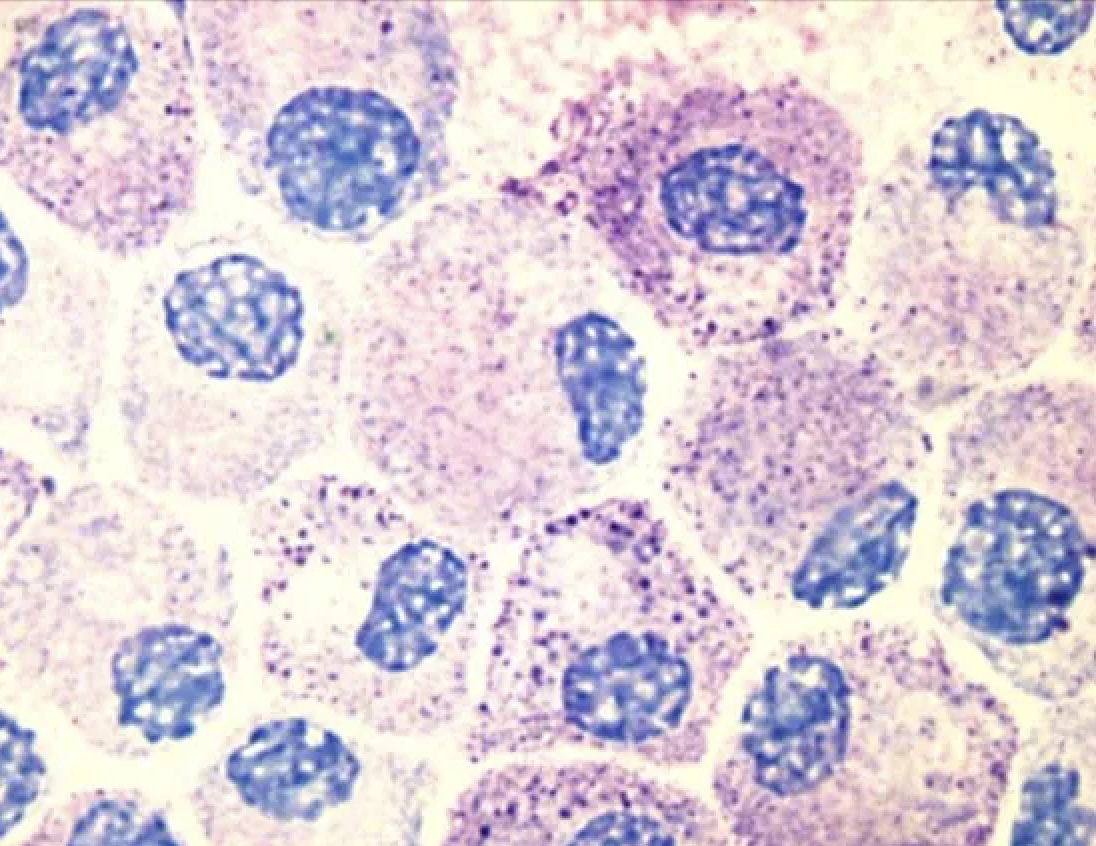
Understanding MCAS
Understanding MCAS (Mast Cell Activation Syndrome): A Comprehensive Guide
In this article, I’ll explain what MCAS (Mast Cell Activation Syndrome) is, how it presents itself, common triggers, how it’s diagnosed, and what steps you can take to manage it. Understanding this complex condition is the first step toward finding relief.
As someone who has worked with countless patients struggling with unexplained symptoms, I know how confusing and overwhelming it can be to find answers. One condition that often goes undiagnosed is MCAS (Mast Cell Activation Syndrome). If you’re experiencing symptoms that seem to affect multiple systems in your body—ranging from skin reactions to gastrointestinal distress—MCAS might be the piece of the puzzle you’ve been searching for.
To learn more about my approach to diagnosing and treating MCAS, or to schedule a consultation, visit my website. Together, we can take the next step toward addressing your health concerns.
Caption: Medical Minutes with Dr Marra; Episode 57: Amlexanox and MCAS
What is MCAS (Mast Cell Activation Syndrome)?
MCAS is a disorder where your mast cells, which are part of your immune system, release too many chemicals (like histamine, cytokines, and other inflammatory molecules) in response to things that normally wouldn’t cause a reaction. Mast cells are critical for fighting infections and healing injuries. However, when they become overactive—as they do in MCAS—they release these chemicals inappropriately, causing inflammation and a wide variety of symptoms throughout the body.
How Do Mast Cells Affect the Body?
Mast cells are often described as the “guardians” of our immune system. They help protect us from harmful pathogens and are involved in allergic responses. In people without MCAS, mast cells are activated only when necessary. However, in those with MCAS, these cells are triggered even when there’s no infection or allergic response, resulting in unnecessary inflammation and a cascade of symptoms.
Symptoms of MCAS (Mast Cell Activation Syndrome)
The symptoms of MCAS can vary greatly from person to person, which makes it difficult to diagnose. You may experience symptoms in one or more systems of your body. The most common signs I see in my practice include:
- Skin Reactions: Itching, hives, and skin flushing are some of the most frequent symptoms. When mast cells release histamine, these types of skin reactions can occur.
- Gastrointestinal Distress: Symptoms like nausea, diarrhea, bloating, or abdominal pain are common, as mast cells in the gut become activated, leading to digestive upset.
- Respiratory Symptoms: Many patients experience asthma-like symptoms—such as wheezing, shortness of breath, or tightness in the chest—as mast cells in the respiratory tract react.
- Cardiovascular Symptoms: Symptoms like dizziness, rapid heart rate, and low blood pressure can arise when mast cells trigger inflammatory chemicals in the cardiovascular system.
- Neurological Symptoms: Brain fog, headaches, and mood changes such as anxiety or depression are also associated with MCAS, likely because of mast cell activity in the nervous system.
Common Triggers of MCAS (Mast Cell Activation Syndrome)
One of the most important aspects of managing MCAS is identifying and avoiding its triggers. I always encourage my patients to track their symptoms and note potential triggers. Some of the most common culprits include:
- Environmental Triggers: Certain environmental factors, such as changes in temperature, exposure to mold, and even strong fragrances, can set off symptoms. I’ve seen many patients react to exposure to things like cleaning products or cigarette smoke.
- Dietary Triggers: For many with MCAS, specific foods like fermented foods, alcohol, or high-histamine foods (such as aged cheese, processed meats, and vinegar) can aggravate symptoms. Keeping a food diary can help pinpoint these. Read more about how to maintain an anti-inflammatory diet.
- Stress: Both emotional and physical stress can exacerbate symptoms. Stress management is crucial for those living with MCAS, and I always emphasize practices like deep breathing, yoga, or meditation to help reduce flare-ups.
- Medications: Some medications can worsen MCAS symptoms, particularly preservatives or other compounds that may activate mast cells.
Diagnosing MCAS (Mast Cell Activation Syndrome)
MCAS can be challenging to diagnose because its symptoms overlap with so many other conditions. There’s no single test that can diagnose MCAS definitively, but the process typically includes:
- Blood Tests: These can measure levels of mast cell mediators like tryptase, histamine, and other markers that indicate excessive mast cell activation.
- Urine Tests: A 24-hour urine collection can measure histamine metabolites and other inflammatory substances.
- Symptom Tracking: I always encourage patients to keep detailed records of their symptoms, triggers, and any changes in their health, as this is a key part of diagnosis.
How You Can Treat MCAS (Mast Cell Activation Syndrome)
There is currently no cure for MCAS, but with the right treatment plan, you can manage symptoms and improve your quality of life. Treatment typically involves a combination of medications, lifestyle changes, and trigger management. Here are some of the most effective strategies:
- Antihistamines: Histamine is one of the primary chemicals released by mast cells. Antihistamines can help control symptoms like itching, hives, and swelling.
- Mast Cell Stabilizers: These medications work to prevent mast cells from releasing their inflammatory chemicals in the first place, helping to reduce flare-ups.
- Avoiding Triggers: By identifying what sets off your symptoms and taking steps to avoid those triggers—whether it’s a certain food, chemical, or environmental factor—you can significantly reduce the frequency and severity of symptoms.
- Stress Management: Since stress is a significant trigger for many people with MCAS, I encourage all my patients to incorporate regular stress-relief practices into their routine, whether through mindfulness, yoga, or other relaxation techniques.
- Supportive Therapies: In addition to traditional treatments, I’ve found that many patients benefit from integrative approaches like acupuncture, functional medicine, or dietary changes. These can support your immune system and help reduce inflammation.
Treating MCAS can be very tricky, requiring the use of several mast cell stabilizing medications and natural supplements. These can include any combination of the following and should be monitored by a physician:
Pharmaceutical Medications Natural Treatments
- Zyrtec Hist DAO
- Allegra Histaquel
- Famotidine Histamine Balancer
- Benedryl MC Balancer
- Loratidine D-Hist
- Ketotifen Bromelain
- Zafirlukast Cannabinoids
- Cromalyn Sodium Quercitin
- Ranitidine Green Tea
- Aspirin Saloxicin
- Hydroxyurea Curcumin
- NSAIDS Vitamin C
- LDN (low dose naltrexone) Luteolin
- Benzodiazepines Resveratrol
- Zolair Honokiol
- Hydroxyzine Rutin
- Doxipen Genistein
- Periactin Isatis
- Tagamet Red Light therapy
- DMSO cream for itching and hives Hyperbaric Oxygen
- IVIG regulates the immune system
Living with MCAS (Mast Cell Activation Syndrome)
While living with MCAS may feel daunting, I want you to know that you are not alone, and relief is possible. Here are a few practical tips to help you manage your condition:
- Follow a Low-Histamine Diet: One of the most effective ways to control MCAS symptoms is to avoid foods that are high in histamine, such as aged cheeses, fermented foods, and alcohol. Learn more about how to follow a low-histamine diet now.
- Incorporate Stress Management Techniques: Given the role stress plays in MCAS, I highly recommend finding ways to reduce stress, whether through daily relaxation exercises or other mindfulness practices.
- Build a Support Network: Living with a chronic condition like MCAS can be isolating. It’s important to build a strong support system of friends, family, or online communities who understand what you’re going through.
- Educate Yourself and Others: The more you understand your condition, the more empowered you’ll feel in managing it. Educating those around you—your family, friends, and even healthcare providers—can help ensure you receive the support you need.
Partnering with Dr. Susan Marra for MCAS Treatment
If you suspect that MCAS may be the underlying cause of your symptoms, I understand how frustrating it can be to navigate the complexities of this condition. The good news is that with an early diagnosis and personalized treatment plan, significant relief is possible. I’ve seen firsthand how effective a tailored approach to managing MCAS can be, helping my patients reduce symptoms, identify triggers, and restore balance in their lives.
If you’re ready to take the next step toward managing your MCAS symptoms and improving your quality of life, I encourage you to contact us. Together, we can explore your unique health history, develop a comprehensive treatment plan, and work toward healing. Please don’t hesitate to contact us or call 206-299-2676. I’m here to support you on your journey to feeling better and living well.
Learn more about Dr. Marra now!

Disclaimer The information, including but not limited to, text, graphics, images and other material contained in these videos is for informational purposes only. It is not intended to be a substitute for professional medical advice, diagnosis, or treatment. Always seek the advice of your physician before undertaking a new healthcare regimen, and never disregard professional medical advice or delay in seeking it because of something you have seen, read, or heard in these videos.


